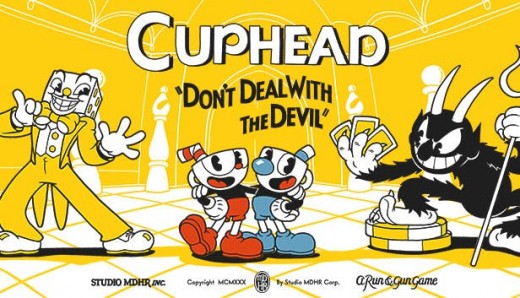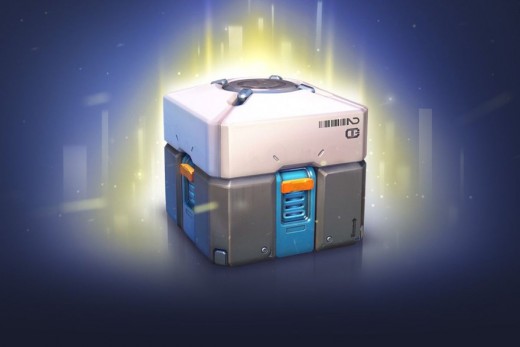Loot Boxes are Fine, and Other Lies
It's time for another chat
18 months ago I'd written about microtransactions not being a necessary evil in the video games industry, a stance that I want to be more relaxed about, but can't seem to find it in me when it's only the so-called AAA industry that implements them into games they choose not to charge more for (if we don't include multiple editions where you either want the standard or the top, or the DLC or season/battle passes, or pre-order perks from numerous retailers). The same industry that says games are too expensive to make while failing to disclose the costs of development, yet is happy to announce the billions of dollars it makes not from the box price but the steady creep of in-app purchases. Not the indie market that has difficulty getting onto stores, not to mention how hard it is to be found when Steam decides it can't be bothered with quality control because it became too big for its own good (I'm one of the few who doesn't believe Valve's politics are the reason it's opened the floodgates). And while I dislike a lot of the practices on mobile, many justified the existence of microtransactions with the lack of a price tag, a risky and rather humbling approach to monetisation.
18 months have passed, and loot boxes have come and seem to be on their way out. Where developers like id Software have removed loot boxes in favour of a somewhat better reward system from Quake Champions, others still add them despite growing government involvement.

My condemnation of loot boxes isn't just my typical gamer outrage. I save that for Twitter, and the odd comment section on various news websites. It comes from a time when I should've known better, but instead chose to purchase keys for loot crates given free during play sessions of Team Fortress 2. I'd spent a lot of money given to me at Christmas some 8 years ago, too much in fact, as it had led to my bank account being overdrawn. Steam had not notified me that it was continuing to charge me despite having no funds available, nor did the bank attempt to inform me or suspend purchasing. I accept the blame for this, but it got me thinking: where are the warnings that maybe you've gone too far? Normally I find comfort in knowing I'm not the only one who got duped - or duped themselves -, but seeing articles about how children rack up a several thousand dollar bill on a game, having nary a thought to the consequences is upsetting. Not that I want this to descend into "think of the children", as many governments have resorted to when really there's no need.
Here's the defences I see for loot boxes in the games industry, and my response to them:
"I want to support the developers"
In no other industry are its consumers so knowledgeable about the inside practices or the internal power plays. Whistle blowers and anonymous tips fuel the games press' ability to help their readers and viewers understand the latest controversy to get clicks for. It's also true that in no other industry do consumers think they're knowledgeable, when really they have zero experience in matters and think that by virtue of righteousness they can make a creator's life Hell.
The point I want to lead up to is that unless we're one of those people inside the industry where we're either working there or are close friends with someone who does, we've no idea where the money goes. In my household my family never talks about wages, it's personal, and I would expect that goes for a developer. No community manager on a forum really wants to go into details of their pay packet, which would probably lead to outrage in the immediate future and mockery in the distant because, well, it is a video game forum. But enough contempt for my readership, other sites will get jealous.
Surely the onus of proof that a portion of each/all loot box sales are going to the developers is on the one who claims to purchase them for that very purpose? So far I've seen no articles stating that this ever happens unless the developer self-publishes, but then that argument applies if their game has a base cost or DLC or microtransactions.
I'm happy supporting developers, including their families after passing away. Such was the case when I'd paid £39.99 - ten times the cost of Warner Bros.' charity DLC for Middle-Earth: Shadow of War - because the family would not see the benefits of my purchase of that DLC, having lived in the UK. I'm also grieved for Obsidian Entertainment, who lost out on a bonus they'd receive for their work on Fallout: New Vegas if their game received a score of 85 on Metacritic [of all places], yet scored one point under the requirement. Since then I've made it my business to purchase each of their games before being acquired by Microsoft.

Righteousness isn't enough to justify loot boxes. It's also not enough to dismiss them, so I need to strengthen my argument. I want to support developers who make good video games, even if it's something I don't particularly enjoy. I bought Hellblade: Senua's Sacrifice not because it's my cup of tea, but because it was a game about mental illness, and does so in a way that isn't so much as sensitive to the issue as letting the player know of its violent effects. Cuphead isn't a game that I've played since its release, but I respect a development studio who offers an art style out of the ordinary and delivers it with a respect for its inspiration that I've not seen before. I purchased Kingdom Come: Deliverance because it took a lot of blood, sweat and tears to put together and release in a world where the challenge and roleplay value are considered a detriment in the AAA space. None of them have loot boxes. None of them are addictive for me, although the adrenaline rush one gets after beating a bothersome challenge is euphoric.
I want to support the developers too. But I won't if they have loot boxes. I don't need them to be hooked; Spyro: Reignited Trilogy (without the "the's" it sounds like a typical Yorkshire sentence) feels all the better because it's a game by Activision without the usual Faustian bargain attached. Besides the download so you'll not be able to play it when Activision/Sony pulls the plug on its servers, but it's progress. Even so, that's not much of an argument in favour of loot boxes, that they're so awful it makes games without them feel great.
See Also: My thoughts on "schmambling", a few months ago
"It's just cosmetic"
Until it isn't.
I consider this argument as a single part of a series called "Moving the Goalposts", provided we're using jumpers for goalposts. Or the frog in boiling water, whichever you prefer. In Team Fortress 2, something being cosmetic in crates was very rarely the case, but even then the defence was (and I'll admit I'd said this too) you could get everything in the crates in-game. Which was true. But you had no control over when, what, why or how you'd get an item. You could play poorly, or not at all, and still be rewarded items. You could also play for hours on end and be the best player in every match you'd enter but not be entitled to a single item upon respawning from a dastardly defeat. It was chaotic, and that's part of the reason loot boxes are still around (except now everyone's a winner, if you count getting a single part of a digital taste-free Kinder egg a victory).
That was the genesis of "it's just cosmetic", which applies to very few games. The more common argument should be "you can get it free in-game", given how rife Pay-2-Win is in others in some form or another. Fortnite's Save the World mode - once its core - has players rely almost entirely on Piñatas being smashed open for virtual goodies, which apparently haven't been given much thought. You can get the best items for your level through them, and completely destroy the progression path. I hadn't even gotten to the 2nd of the then 4 zones of the game, and I'd reached the top of my progression path - I didn't want to play any other character, they were Legendary, I had my favourite weapons... what incentive was there for me to play further? There wasn't, and I was quick to remember this when I tried to return only to realise the game was a side-activity to the home screen.
The attention Star Wars: Battlefront II got was only due to one of two factors: it was a Star Wars game, so all eyes were on it, or it was because Electronic Arts was publishing it, and thus all gamers' eyes were on it. It could've been both. SW:BF2's negative attention is sorely lacking where other games have loot boxes that contain goodies that aren't just cosmetic. Maybe because they're a Player-versus-Environment (PvE) game or mode, where Battlefront 2 was Player-versus-Player (PvP), and thus was imbalanced. That doesn't make it any more OK to me, and I think my dislike of someone getting more points or contributing more to the team by virtue of being a bigger spender is just as bad as if it were to my detriment in PvP content. The majority disagrees with my opinion and I'm fine with that, but I'd like folks to at least recognise how much we've shifted the goalposts to reach a 'standard'.

"You can get it in the game for free"
Sometimes you can. But even then, why does the item exist in the first place? If we're talking about experience (XP) boosts, then does that not mean it has been designed in such a way that the developers feel they're needed, or at least in demand? If it's about giving the player choice then the developers/publishers/PR spokesperson must realise that choice is a double-edged sword; where is the choice to play a version of the game that is by default faster? Where is the choice to use a cheat-code that gives me a constant 3000% boost to experience points from all activities? Where is the choice to download mods or use the Steam Workshop to add more skins that probably look better than the ones that exist to pad out a loot box, in order to prevent me getting the good stuff? That's another thing - why would you buy loot boxes after you were lucky enough to get all the stuff you wanted? You being content is not the publisher's endgame.
I've derailed us again, I apologise. I could get loot boxes for free in Middle-Earth: Shadow of War, but by doing so the length of the game is doubled, and half of my gross time in the game is spent on the final mission, gathering an army of Uruks at the mercy of undisclosed odds. I could wrangle them into submission, but again, I have to hope that the "right" ones appear at the time I choose to go after them, and further hope they're not assassinated or pummelled by in-fighting.
The key word here is "hope". Because unless the law requires a company to disclose the odds of you getting a specific rarity, chances are the company will not. Dirty Bomb is great for this - yes, it has loot crates, but it at least has the spine to tell you what chance you have of getting the item you want. It might turn some people off, it might be totally false but personally speaking I feel significantly more confident in their programme than those who choose to avoid it. Exceptions include Blizzard with their Overwatch crates in China (later opting to sell currency for items, so as to avoid showing the odds which were disastrously low), but worse than Activision's attempts of dodging the law in the East are Electronic Artshole in the West, selling loot packs that have less than a 1% chance of getting some of the best items in the game. For context, the rarest mounts in World of Warcraft have a percentage chance of approximately 0.03% of "dropping" (famous ones like Rivendare's Deathcharger are ~1%), and all one has to do to begin to have a chance at them is paying the monthly £9.99 subscription fee for a game that is positively colossal compared to many, many others in this sector of the entertainment biz. Now imagine paying between 30p to £17 for that same kind of chance. Suddenly a low-res horse in midnight blue rags seems a lot more attractive.
"You don't have to buy it"
I could be pedantic and say "you don't need to breathe", but I'd like to improve the quality of discussion rather than stoop so low. Like a human needs to breathe if it wants to live, a gambling addict needs to buy these things for their fix even if there are free alternatives, which are almost always slower or harder to obtain. The current thrill is never enough, there's something always nagging you to go bigger, which makes gambling addiction especially dangerous. If you can resist what others would consider a constant psychological barrage, you have willpower where I don't and that's a commendable trait, though I politely request you afford those who do not the respect I'm affording you. If you don't find my analogy fitting, look at what Jim Sterling calls the video game's industry's own addiction; it can't possibly fathom the idea of a game without wanting "all the money in all the world always".
We don't need to buy arms, illegal narcotics or slaves, but ignoring the problem doesn't make it go away. It's not enough to remove the supply, the demand has to vanish also, hence why we have anti-drug campaigns, why there's peace walks, why people are punished for exploiting the vulnerable. If you don't support these things pat yourself on the back. We also regulate such things and enforce laws, something the games industry had the capacity to do but decided to ride on and damn the consequences, forcing governments of the world's hands. I didn't like the idea of Parliament acting against loot boxes, but when the games I enjoy are being loaded with them, when the Entertainment Standards Ratings Board (ESRB) didn't want to deal with it and would continue to advocate for loot boxes' inclusion, they'd forced me to bring it to my government's attention.

"Companies exist to make money"
See the above with gun running, arms dealing and human trafficking. Cigarette manufacturers exist to make money but they still have to abide by the law and exhibit some degree of ethical behaviour. Ophiocordyceps unilateralis exists to penetrate the arthopod exoskeleton of its ant host and infect the colony it belongs to before dying, but I'm not so sure I'd want that to happen to me if I were an ant. It's this kind of thinking that leads to The Last of Us.
If something is harmful, dangerous or just unethical it's in our best interests to act upon it. So far I've not seen any good from loot boxes, given how my home country has come to the shameful discovery that over 25,000 of its young citizens confess to being problem gamblers... and we've no proof that sequels to games with them are possible thanks solely to their implementation, or that those doing the grunt work see a penny of the earnings.
"What about Trading Cards?"
I'm going to use this booster pack of Pokémon cards as my case as to why loot boxes are different. It contains 10 random cards. Those cards were produced at a factory that must know what cards are in that pack, due to the amount of ink used, the serial numbers and codes, and the rarity at which they choose the card to be set at. If they don't know this information, they can't know if the best cards are all being obtained immediately. If they are, why buy more packs than necessary? The contents of that pack cannot change upon being sealed at the factory floor, and cannot be known until someone opens the packet and reveals them. Unless you're into the philosophical idea of "if a tree falls in the woods, does it make a sound" (or my preferred one by Gary Larson, shown below).

To keep in spirit with trading cards though, let's take a game such as Hearthstone: Heroes of Warcraft and how that handles its selling of digital card packs. A pack contains six cards and - like the Pokémon pack referenced earlier - will be limited to cards of that season, or type. Digital card packs do not have the same burden as physical; it's precisely the reason why Hearthstone did such a good job of replacing the dying World of Warcraft Trading Card Game, and other tangible experiences like the miniatures game or the Warcraft RPG sourcebooks for the d20 system.
Digital card games don't need factories producing card or paying for its delivery, paying for ink or again its delivery, having people watch the machines, having people pack the cards into boxes on pallettes to be driven in vans that require MOTs, insurance and fuel, to be then taken to stores who have limited shelf-space and need eyes in specific places and a human being trying to sell them (when they're not trying to shift used sales and pre-orders). This is why game publishers try so hard to get people to purchase digital copies, plus the fact they don't need to grease palms with Gamestop and encourage exclusive pre-order bonuses (and if they keep making their own stores, that'll include Steam). Hearthstone requires only artists and programmers, which still work very hard to make very beautiful cards and visual effects. They can also add flashy imagery to make opening them all the more enticing like a slot machine does. Because why else would publishers hire psychologists to encourage retention?
I'm not ignorant of the good Hearthstone has achieved, recently accruing 100 million lifetime players. Its system works because the card packs are inexpensive and easy to find, and that goes for players too. Compare that to the roleplaying game giant that's been around since the mid-70s, Dungeons & Dragons - finding real people to sit around a table with and talk in funny accents to is quite hard in my area. I'd have no luck with a significantly less popular and recognisable TCG.
So yes, it's very much like a trading card game. Only a "real" pack of cards doesn't burst open with the audio and visual equivalent of pheromones.
Indefensible
Despite the arguments listed above, rarely have they been intended to defend or be in favour of loot boxes. Rather, people use the above to excuse them or shut down the constant nagging of people who talk about them constantly instead of aiming their well-intended ire toward the ones who cause such frustrations in the first place. Instead of telling people to shut up about loot boxes, I would ask that those saying that would understand the problems. If you've made it this far, you'll know at least where I'm coming from. I won't claim to be a voice for the voiceless, or some paragon of virtue, justice and ethics in video games, I'm a humble critic in an age where everyone is thanks to being empowered more than ever to criticise.
There's a larger discussion to be had about loot boxes, and for those interested I'm willing to have it. It'll be good to fill the time while I wait for publishers to explain the artistic merits of loot boxes in their work, or what the benefits of randomness to the consumer are versus how we purchase anything. Perhaps they'll reveal the next dragon they have to bravely slay, now that used games, piracy and games being too expensive to make are slain (by the cynics, not by those telling us these myths).
Until then, I'll be overwhelmed with pride and accomplishment for dispelling more untruths.








